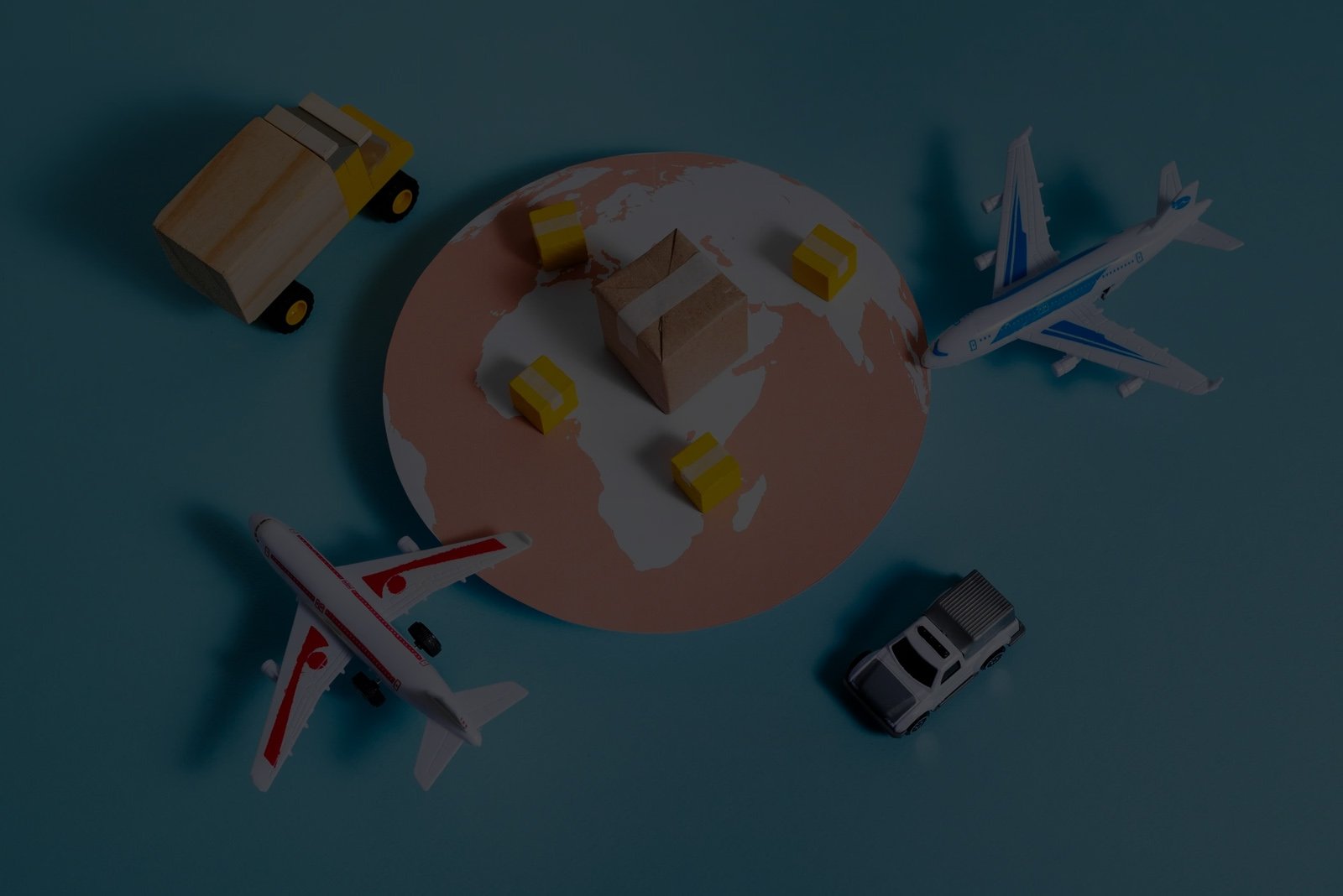
Shipping to Thailand
Shipping to Thailand
Require shipping to Thailand? Enjoy competitive rates on a full suite of freight forwarding services when you engage Express Freight Management!
Our dedicated team of subject matter experts will work closely with you to devise a customized solution that satisfies both your needs and budget constraints. Discover the variety of freight forwarding services we offer below:
Free Quotation For Your Shipment
Items Prohibited or Restricted for Export in the United States
Useful resources:
Items Prohibited Or Restricted For Import Into Thailand
Shipping Process from the United States to Thailand
Understanding the shipping process is crucial for a smooth and efficient transfer of goods. This section provides a comprehensive overview of the steps involved in transporting your cargo from the United States to Thailand, ensuring timely and secure delivery.
Upon engagement and acceptance of our quotation, Express Freight Management will provide you with necessary materials including packing supplies, boxes, international customs clearance forms, and shipping labels. These will facilitate the shipping process and ensure compliance with regulations.
After packing your items, a designated truck will pick up the boxes and transport them to a consolidation warehouse.
At the warehouse, your goods will be consolidated and packed into a container, ready for loading onto the ship bound for Thailand.
A few days before reaching, the ship’s captain will submit a report to the Thailand Customs detailing the vessel, crew, and cargo.
Upon arrival, the container will be unloaded using large cranes.
Customs officials will inspect selected containers to ensure the contents match the information on the submitted documents.
Once cleared by customs, the container will be transported to an import distribution center, where the cargo will be deconsolidated by shipment.
The sorted cargo will be delivered to the final destination via local trucking services.
Shipping Methods Available
When shipping goods from the US to Thailand, there are two primary modes of transportation: air and sea freight. Additionally, land transportation via trucking may be employed for seamless door-to-door delivery.
Documents Required For Shipping To Thailand
To transport your goods from the United States to Thailand, you will need to prepare certain shipping documents. These are some examples of the documents needed:
- Commercial Invoice: This document includes details such as the seller’s and buyer’s names and addresses, a detailed description of the goods, the unit and total prices, and the terms of sale.
- Packing List: This details the contents of each package, including weights and dimensions.
- Bill of Lading (for ocean freight) or Airway Bill (for air freight): These documents act as receipts for the goods and evidence of the contract of carriage.
- Certificate of Origin: This certifies the country where the goods originated. It may be required for customs clearance and to determine whether any duties apply.
- Import License: Depending on the type of goods being imported, you may need an import license from the relevant Thai government agency.
- Prohibited and Restricted Goods Declaration: This document declares that the shipment does not contain any prohibited or restricted items.
- Packing Declaration: This document specifies how the goods have been packed.
- Insurance Certificate (if applicable): This provides evidence that the goods are insured during transit.
Commonly Shipped Items From USA To Thailand
Common items shipped from the United States to the Thailand include:
- Electronics
- Apparel and Fashion Accessories
- Automotive Parts and Accessories
- Home Appliances
- Health and Beauty Products
- Toys and Games
- Industrial and Machinery Equipment
- Food and Beverages
- Medical Supplies and Equipment
- Books and Educational Materials
These are just a few examples of the wide range of goods regularly shipped from the United States to Thailand. Whether it’s consumer goods, industrial equipment, or specialized products, Express Freight Management can help you transport your items safely and efficiently.

WHY CHOOSE EXPRESS FREIGHT MANAGEMENT?
Express Freight Management
Express Freight Management is your one-stop shipping solutions provider. With a global reach and a commitment to customer satisfaction, we ensure smooth and efficient shipping from start to finish.
FAQs About Shipping To Thailand
How Much Does It Cost To Ship To Thailand?
The cost of shipping to Thailand can vary widely depending on several factors, including:
- Origin Country: Rates differ significantly based on the sender’s location due to varying distances, customs regulations, and delivery complexities.
- Package Details:
- Weight: Heavier packages cost more.
- Dimensions: Larger packages, even if light, can increase costs due to volume.
- Type of Goods: Certain items (e.g., electronics, hazardous materials) might incur additional fees or require special handling.
- Shipping Method:
- Air Freight: Generally faster but more expensive.
- Sea Freight: Slower but often more economical for heavy or bulk shipments.
- Additional Services:
- Tracking
- Insurance
- Express or Expedited Shipping
- Customs Clearance (in some cases, this might be an extra cost)
Remember, the most accurate shipping quote will depend on the specifics of your shipment. Always check with the shipping providers for the most current and detailed pricing.
What Is The Tax On Shipping To Thailand?
The tax on shipping to Thailand depends on several factors, including the type of goods, their value, and the associated shipping costs. Thailand uses the CIF (Cost, Insurance, and Freight) method to calculate import duties and taxes, meaning the taxable amount includes the cost of the goods, insurance, and freight charges. Here’s a breakdown of the key taxes involved:
- Customs Duty:
- Rates vary widely based on the product’s classification under the Harmonized System (HS) code, ranging from 0% to 80%. For example, general consumer goods might face 20-60%, while specific items like agricultural products or luxury goods (e.g., wine) can have higher rates.
- Goods valued below 1,500 THB (approximately $45 USD as of March 2025) are exempt from customs duty, but this applies only to the total CIF value (goods + shipping + insurance).
- Value Added Tax (VAT):
- A 7% VAT (reduced from the standard 10% until at least September 30, 2025) applies to most imported goods, calculated on the sum of the CIF value plus the customs duty. For instance, if the CIF value is 10,000 THB and the duty is 2,000 THB, VAT would be 7% of 12,000 THB (840 THB).
- Since May 2024, even items valued between 1-1,500 THB are now subject to VAT, closing a previous exemption loophole for small e-commerce shipments.
- Other Taxes:
- Certain goods (e.g., alcohol, tobacco, or luxury items) may incur additional excise taxes, which can significantly increase costs. For example, wine can face an effective tax burden nearing 400% due to combined tariffs and excise duties.
Example Calculation
Suppose you’re shipping a $200 item to Thailand with $50 shipping and $5 insurance (CIF = $255, or roughly 8,500 THB at an exchange rate of 33 THB/USD):
- Customs Duty: If the HS code assigns a 20% rate, duty = 8,500 THB × 20% = 1,700 THB.
- VAT: Applied on (CIF + Duty) = (8,500 + 1,700) × 7% = 10,200 THB × 7% = 714 THB.
- Total Tax: 1,700 THB (duty) + 714 THB (VAT) = 2,414 THB (about $73 USD).
Key Notes
- Exemptions: Personal items or household goods for relocation may qualify for duty exemptions if specific conditions are met (e.g., owned for a certain period before moving).
- Shipping Impact: Higher shipping costs increase the CIF value, thus raising the tax amount. This makes cheap goods with expensive shipping less cost-effective.
- Variability: The exact tax depends on the product’s HS code, which you can check on the Thai Customs website. Enforcement can also be inconsistent—some packages slip through without fees, though this is unpredictable.
For a precise figure, you’d need the specific HS code and shipment details. Need a precise estimate? Contact us with your shipment details, and we’ll guide you through the process—Thailand’s rules can vary, but Express Freight Management has got you covered!
What Is Prohibited To Ship To Thailand?
When shipping to Thailand, certain items are strictly prohibited by the Thai Customs Department under the Customs Act B.E. 2560 (2017). Including these in your shipment could lead to delays, confiscation, or legal penalties.
The following items are prohibited from being shipped, as enforced by Thai Customs:
- Narcotics: Illegal drugs like marijuana, opium, cocaine, morphine, or heroin—no exceptions, even with a prescription.
- Obscene Materials: Pornographic books, images, videos, or any explicit content.
- Counterfeit Goods: Fake trademarked items, pirated software, CDs, or DVDs that infringe on intellectual property rights.
- Fake Money: Counterfeit coins, banknotes, or currency of any kind.
- Protected Wildlife: Endangered animals, plants, or products covered by CITES (e.g., ivory, certain furs).
- Goods with National Flag Designs: Items featuring the Thai flag in a way deemed disrespectful.
- E-Cigarettes and Vapes: All electronic smoking devices and refills are banned.
- Gambling Equipment: Slot machines, gaming devices, or anything related to illegal gambling.
Why It Matters: Shipping these items can result in your package being seized, returned, or destroyed, and you could face fines or legal action. Want to avoid the hassle? Reach out to us before you ship—we’ll double-check your items against Thailand’s latest customs rules to keep your delivery smooth and compliant!
How Strict Are Thailand Customs?
Thailand’s customs can be quite strict, especially for prohibited or high-value items. They use the CIF (Cost, Insurance, Freight) method to assess duties and taxes, and enforcement has tightened since 2024—small shipments (even 1-1,500 THB) now face 7% VAT, closing previous loopholes. Prohibited items like narcotics, e-cigarettes, or counterfeit goods are a hard no, with seizures, fines, or legal action likely if caught. That said, enforcement can vary: low-value packages sometimes slip through with minimal checks, while high-value or commercial shipments often get thorough scrutiny, including paperwork and physical inspections.
Delays can happen if documentation (e.g., invoices, permits) is incomplete, and misdeclared items might lead to penalties or returns. Random checks are common, so consistency matters. Worried about your shipment? Let us handle the details—our team knows Thailand’s customs inside out and can keep your goods moving smoothly!



















